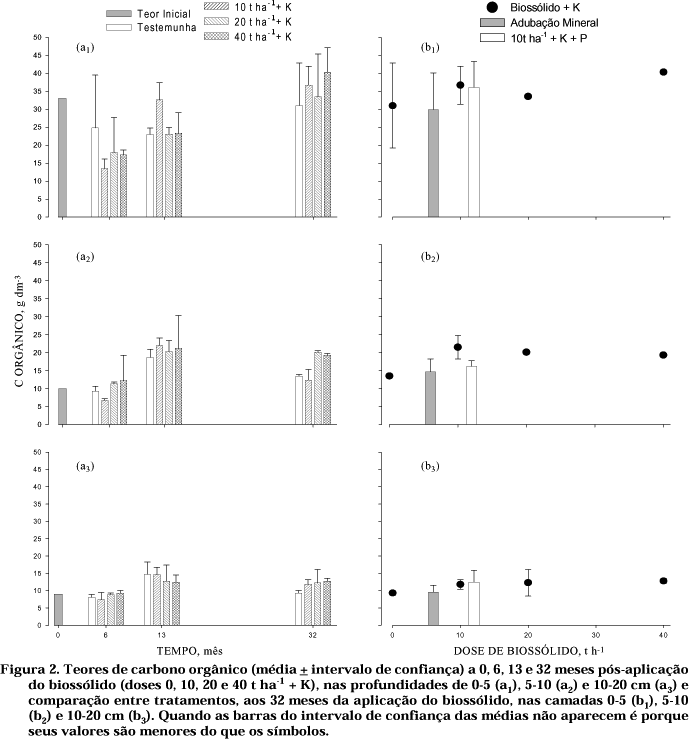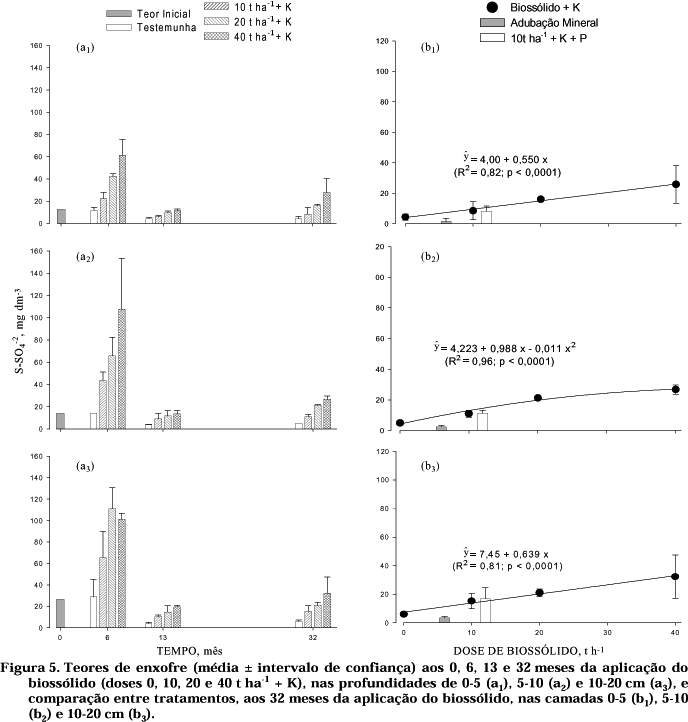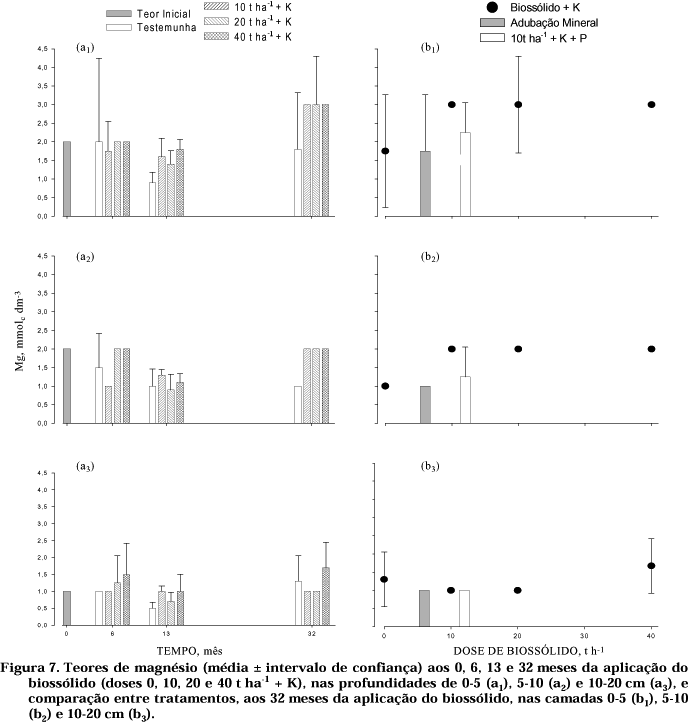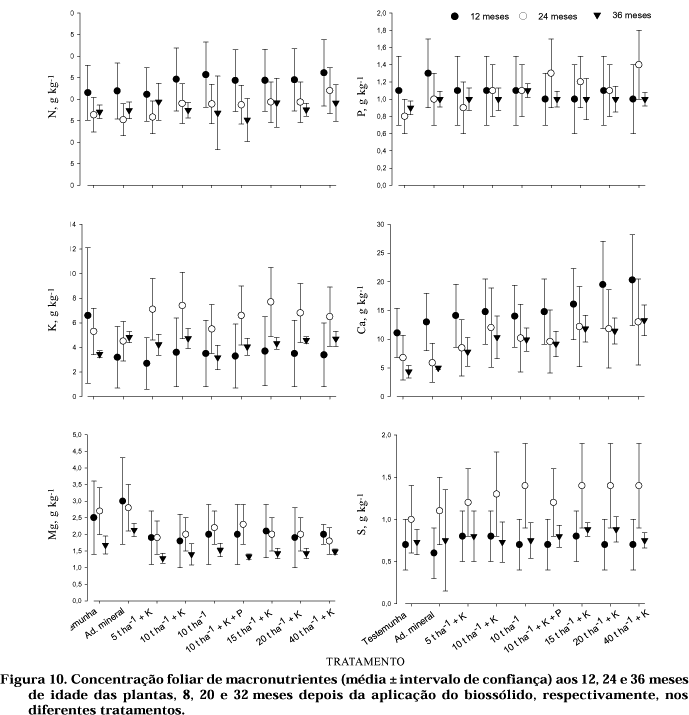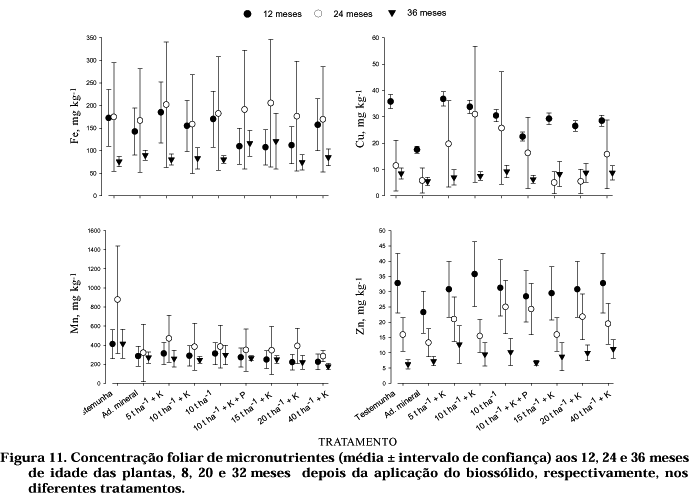Before recommending biosolids at large scale for forest plantations it is necessary to have an ample understanding of its effects on soil and plant. Thus, it was evaluated the soil fertility, nutritional status and growth of a Eucalyptus grandis plantation fertilized with biosolid (bios). The trial was established at the Experimental Station of Forest Sciences of Itatinga - ESALQ/USP (São Paulo State, Brazil). The experimental design was in complete randomized blocks, with 4 replicates. There were nine treatments, namely: (1) control; (2) mineral fertilization; (3) 5 t ha-1 bios + K; (4) 10 t ha-1 bios + K; (5) 10 t ha-1 bios; (6) 10 t ha-1 bios + K + P; (7) 15 t ha-1 bios + K; (8) 20 t ha-1 bios + K; and (9) 40 t ha-1 bios + K. Soil samples (layers 0-5, 5-10, and 10-20 cm) and leaves were chemically analyzed. The stem wood production was evaluated at harvest by weighing the trees. The pH, soil organic carbon, resin-P, and exchangeable Ca increased in the three soil layers up to 32 months after the biosolid application (36 months after planting) in direct association with the increasing biosolid rates. The S-SO4(2-) and exchangeable K decreased 13 months after the biosolid application and increased again 19 months later. The exchangeable Al in the three sampled soil layers decreased as biosolid dose was increased. The application of 12 t ha-1 of biosolid had a positive influence on plant nutrition and led to a wood yield equivalent to the mineral fertilization treatment (1.5 t ha-1 lime, and in kg ha-1, 98 N, 79.5 P2O5, 165 K2O, 1.3 B, and 1.2 Zn).
sewage sludge; organic fertilization; eucalypt; forest; macronutrients; trace elements




